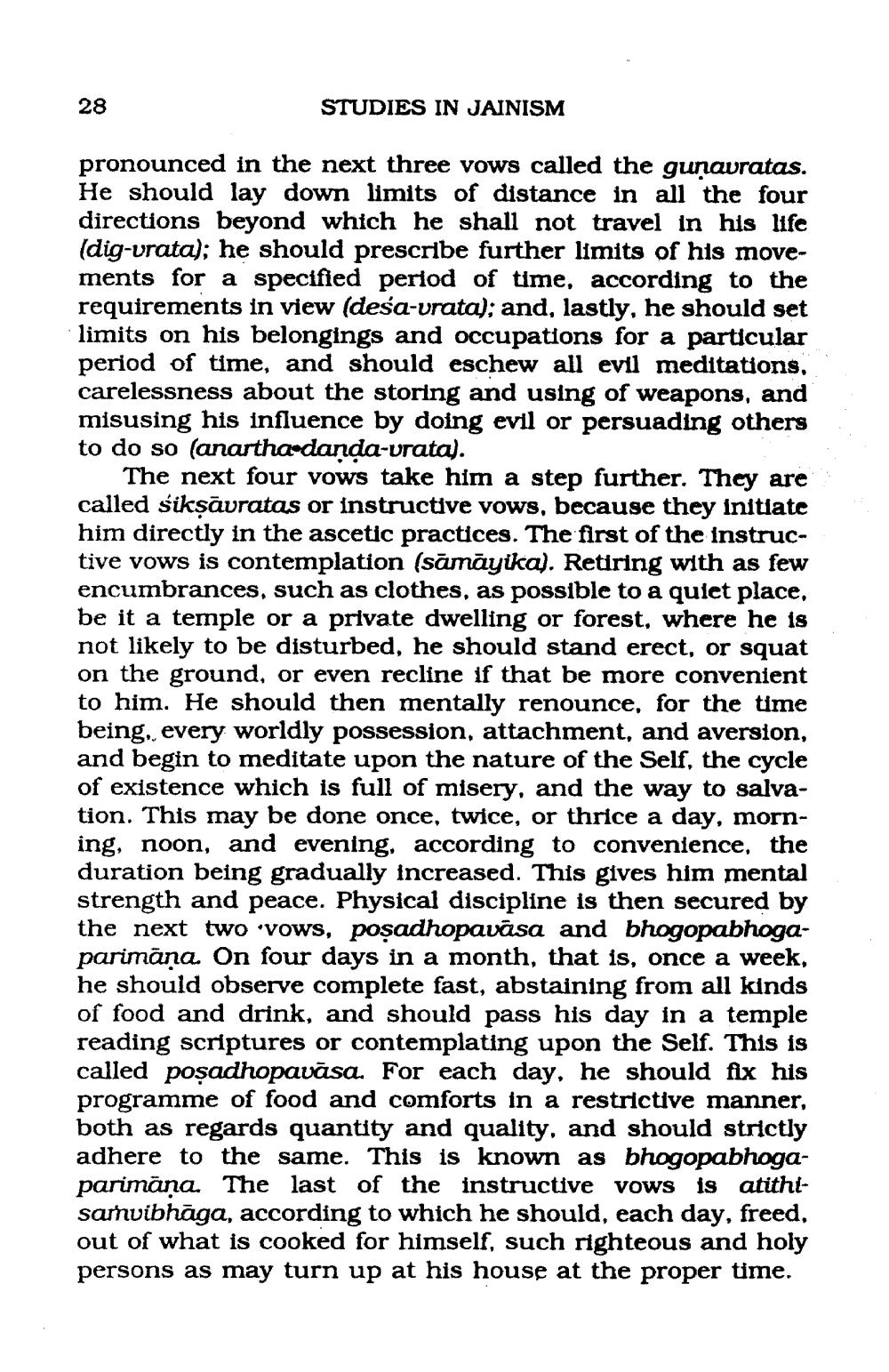________________
28
STUDIES IN JAINISM
pronounced in the next three vows called the guņavratas. He should lay down limits of distance in all the four directions beyond which he shall not travel in his life (dig-vrata); he should prescribe further limits of his movements for a specified period of time, according to the requirements in view (desa-vrata); and, lastly, he should set limits on his belongings and occupations for a particular period of time, and should eschew all evil meditations, carelessness about the storing and using of weapons, and misusing his influence by doing evil or persuading others to do so (anarthadanda-Urata).
The next four vows take him a step further. They are called siksuratas or instructive vows, because they initiate him directly in the ascetic practices. The first of the instructive vows is contemplation (sāmāyika). Retiring with as few encumbrances, such as clothes, as possible to a quiet place,
it a temple or a private dwelling or forest, where he is not likely to be disturbed, he should stand erect, or squat on the ground, or even recline if that be more convenient to him. He should then mentally renounce, for the time being.. every worldly possession, attachment, and aversion, and begin to meditate upon the nature of the Self, the cycle of existence which is full of misery, and the way to salvation. This may be done once, twice, or thrice a day, morning, noon, and evening, according to convenience, the duration being gradually increased. This gives him mental strength and peace. Physical discipline is then secured by the next two vows, poșadhopavāsa and bhogopabhogaparimana. On four days in a month, that is, once a week, he should observe complete fast, abstaining from all kinds of food and drink, and should pass his day in a temple reading scriptures or contemplating upon the Self. This is called posadhopavāsa. For each day, he should fix his programme of food and comforts in a restrictive manner, both as regards quantity and quality, and should strictly adhere to the same. This is known as bhogopabhogaparimāņa. The last of the instructive vows is atithisarnvibhāga, according to which he should, each day, freed, out of what is cooked for himself, such righteous and holy persons as may turn up at his house at the proper time.




